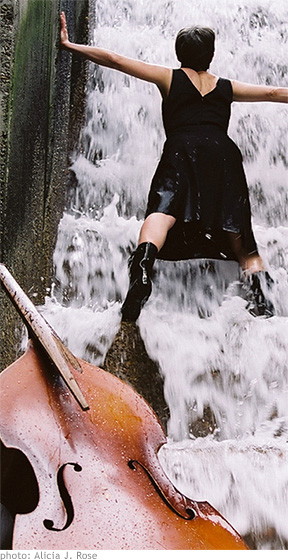 So sorry. Art Scatter has been experiencing technical difficulties. Mr. Scatter was in the far-flung parts of the state hanging with people who raise peacocks and donkeys. His absence meant he couldn’t run interference with the Large Smelly Boys, who at times can be chihuahuas for attention.
So sorry. Art Scatter has been experiencing technical difficulties. Mr. Scatter was in the far-flung parts of the state hanging with people who raise peacocks and donkeys. His absence meant he couldn’t run interference with the Large Smelly Boys, who at times can be chihuahuas for attention.
Then Mr. Scatter got back and wrote about mules (note a trend?) and other thinky things like the League of Tough-Guy Arts Observers. There’s just no way I’m going to get in the middle of that, especially when I have upper respiratory yuck and I’m busy hamstering to get out front of my new job.
Oh, did I tell you I got a new job? How did I get it, you wonder? Let’s see … the story so far, posted way last week:
- Blissful summer.
- No job and no plans for a job.
- Alvin and the Chipmunks.
- A mysterious Jane nominates me for president.
- White House hopes dashed.
- Two Large Smelly Liabilities.
At this point in the story, the mysterious Jane didn’t know this (and I didn’t know her), but I now considered her my new best friend.
In the meantime … on Aug. 13, Mr. Scatter posted something brainy about the National Endowment for the Arts and its new leader, Rocco Landesman. The post got a lot of thoughtful comments and then the mysterious Jane popped up again.
She said, “I think we should invite Chairman Landesman out to the provinces for a look-see. I’d be delighted to have him hear a Third Angle concert.â€
I immediately put on my Sherlock Holmes hat, went to the website for Third Angle New Music Ensemble and checked out its list of board members. Sure enough, there was a Jane.
This is the point of the story where I should divulge Jane’s last name, but I think I’ve dropped enough clues that you can put on your own fancy earflaps and find out for yourself. You don’t even have to light your pipe, because I’ll make it easy for you. Here’s a link.
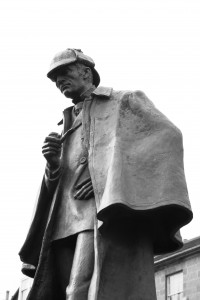 When I spied Third Angle in mysterious Jane’s comments, my ears pricked up. Or at least they would have if I hadn’t been wearing the fancy earflaps. I love Third Angle. And I love Ron Blessinger, the company’s artistic director, who happens to be an old friend. We used to live a few houses apart. Our kids used to swing around in trees together.
When I spied Third Angle in mysterious Jane’s comments, my ears pricked up. Or at least they would have if I hadn’t been wearing the fancy earflaps. I love Third Angle. And I love Ron Blessinger, the company’s artistic director, who happens to be an old friend. We used to live a few houses apart. Our kids used to swing around in trees together.
Ron once wandered down to our house to check on his two kids and they were lined up with my two in the side yard. As I aimed a plastic hose, the four of them were taking turns jumping on an air pad that would send a plastic rocket sailing down the end of our driveway where I had parked the van sideways and opened the door. Ron looked at us and his eyes followed another flying rocket down to the van. He asked if we were trying to hit it through the door. We all nodded and grinned as another kid jumped on the air pad with both feet.
Our kids went swimming together, played on the beach together, watched parades together, had killer water fights together. Ron and I have trailed behind our trick-or-treating kids on Halloween drinking bad red wine. When he and his family were out of town, I occasionally watched their dog. She once urinated in our basement. So Ron and I were like that.
In fact, we were so close we recently became FaceBook friends.
A few days after the now-not-so-mysterious Jane weighed in on the NEA post on Art Scatter, Ron posted a status update on FaceBook that he was “wrapping up a grant while on vacation … how stupid.â€
I almost posted a comment saying that he needed me. And I meant it.
Continue reading How did I get that job? Alvin and the Chipmunks (Part 2)
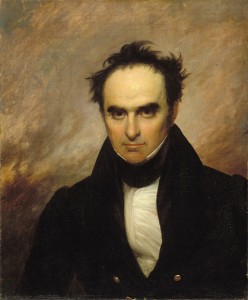 No figure in history is more honored in our news coverage than the revolutionary Russian set designer Grigori Potemkin, and his ingeniously adaptable
No figure in history is more honored in our news coverage than the revolutionary Russian set designer Grigori Potemkin, and his ingeniously adaptable 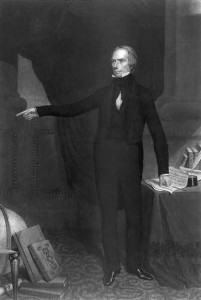 And the House came tumbling down.
And the House came tumbling down.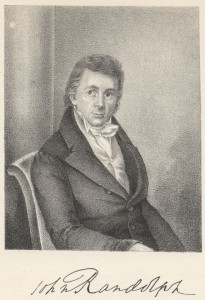 Perhaps the show’s most intriguing plot twist is the revelation, as the
Perhaps the show’s most intriguing plot twist is the revelation, as the 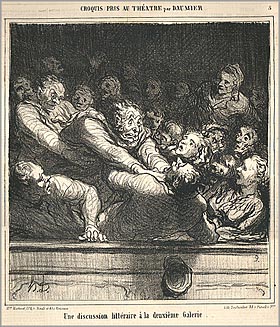 It’s not often that a person starts a full-fledged organization with a casual flick of a typing finger, but I appear to have done just that in an August 27 post in which I
It’s not often that a person starts a full-fledged organization with a casual flick of a typing finger, but I appear to have done just that in an August 27 post in which I 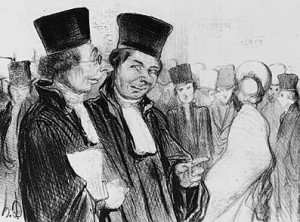 Some didacts will argue that it should be “Tough-guy,” on the basis that a hyphenated word is by definition a single word and a single word can have only a single capitalization. To them I say: “Tough-guy” looks dumb. Start your own club.
Some didacts will argue that it should be “Tough-guy,” on the basis that a hyphenated word is by definition a single word and a single word can have only a single capitalization. To them I say: “Tough-guy” looks dumb. Start your own club.
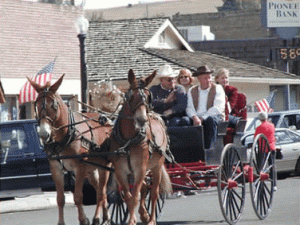 Yes, Mule Days. As in Harry S Truman. As in
Yes, Mule Days. As in Harry S Truman. As in 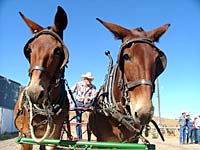 This is not the Sport of Kings, with sleek beauties like Secretariat to give an aesthetic gloss to the gambling and occasional gore. This is mules, the sterile offspring of male donkeys and female horses, who are strong and capable but also awkward and funny-looking, with heads too big for their bodies and ears too long for their heads.
This is not the Sport of Kings, with sleek beauties like Secretariat to give an aesthetic gloss to the gambling and occasional gore. This is mules, the sterile offspring of male donkeys and female horses, who are strong and capable but also awkward and funny-looking, with heads too big for their bodies and ears too long for their heads.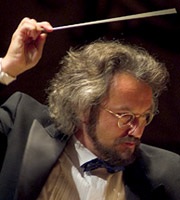 The symphony’s kicking into its season. So are the opera and the city’s theater companies. Ballet is getting ready to haul out the slippers. Across the city, tuxedos are coming out of mothballs (OK, that’s an exaggeration: This IS Portland) and uptown revelers are dusting off their dancing shoes.
The symphony’s kicking into its season. So are the opera and the city’s theater companies. Ballet is getting ready to haul out the slippers. Across the city, tuxedos are coming out of mothballs (OK, that’s an exaggeration: This IS Portland) and uptown revelers are dusting off their dancing shoes.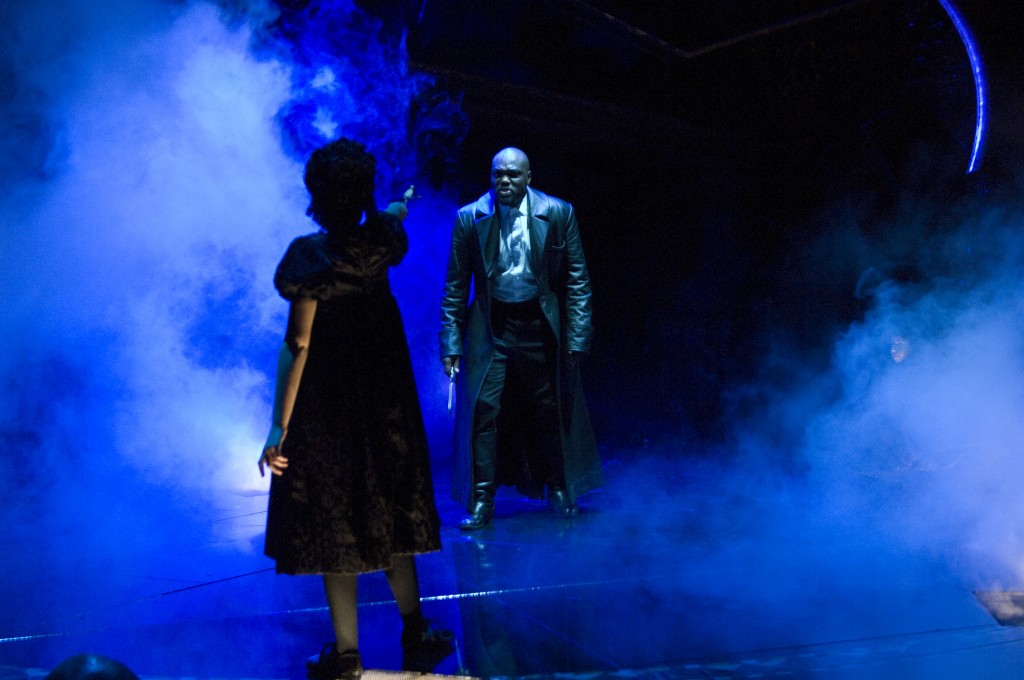
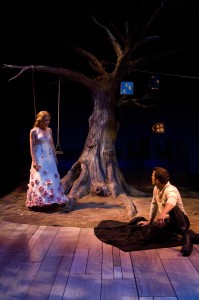 This year we’ve seen some genuinely interesting directing approaches that put a strong personal stamp on the shows yet remain at the service of the literature — a hallmark (perhaps the hallmark) of the Ashland style. The season includes a couple of knockouts (Equivocation and The Servant of Two Masters), excellent work on the always problematical Macbeth and All’s Well That Ends Well, and illuminating moments of theater even in the least successful shows.
This year we’ve seen some genuinely interesting directing approaches that put a strong personal stamp on the shows yet remain at the service of the literature — a hallmark (perhaps the hallmark) of the Ashland style. The season includes a couple of knockouts (Equivocation and The Servant of Two Masters), excellent work on the always problematical Macbeth and All’s Well That Ends Well, and illuminating moments of theater even in the least successful shows.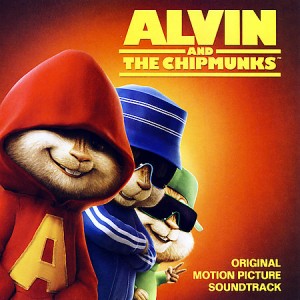 Sure, I had plans. Big plans. I had planned to apply for unemployment benefits just as soon as summer ended.
Sure, I had plans. Big plans. I had planned to apply for unemployment benefits just as soon as summer ended.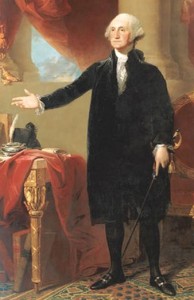 As Mr. Scatter reached for his BlackBerry to call the
As Mr. Scatter reached for his BlackBerry to call the 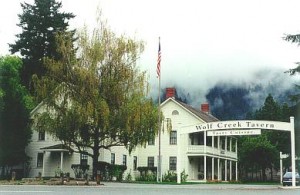 Today, after a matinee performance of All’s Well That Ends Well, the extended Scatter Family leaves Ashland and the
Today, after a matinee performance of All’s Well That Ends Well, the extended Scatter Family leaves Ashland and the 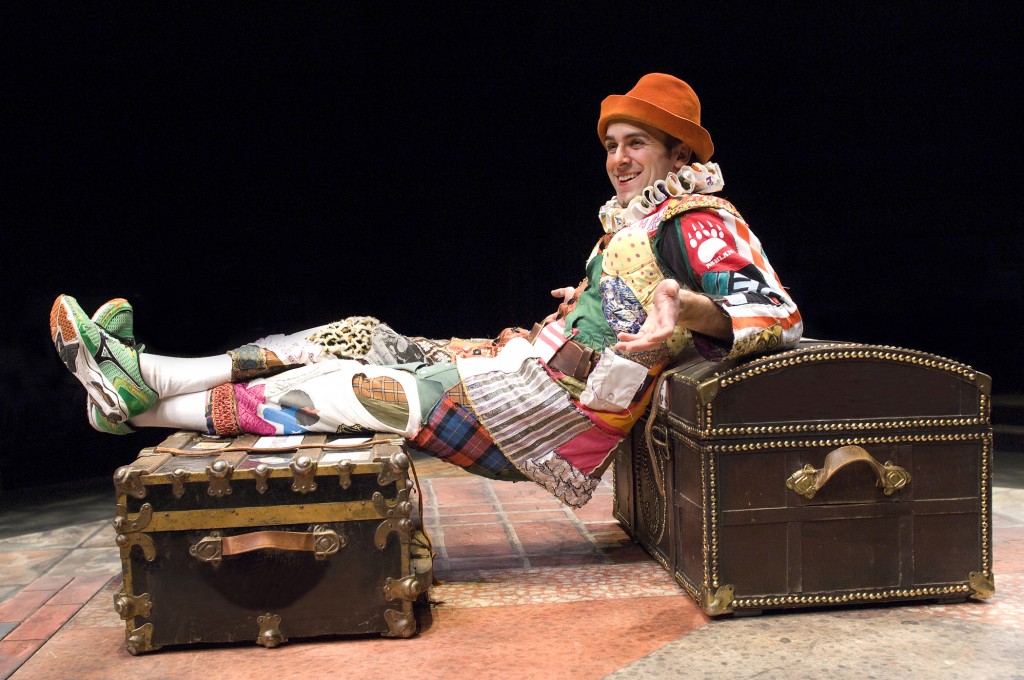
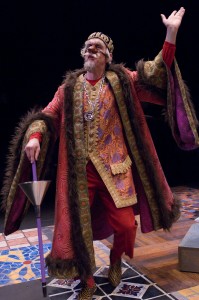 This season’s lark is The Servant of Two Masters, the 18th century Italian comedian
This season’s lark is The Servant of Two Masters, the 18th century Italian comedian 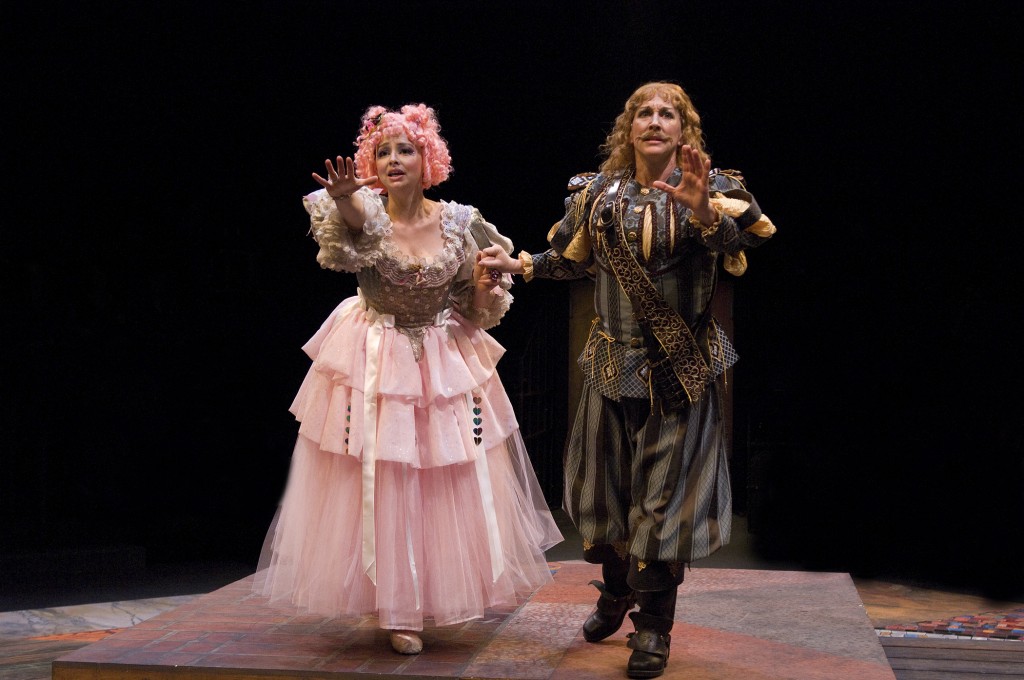
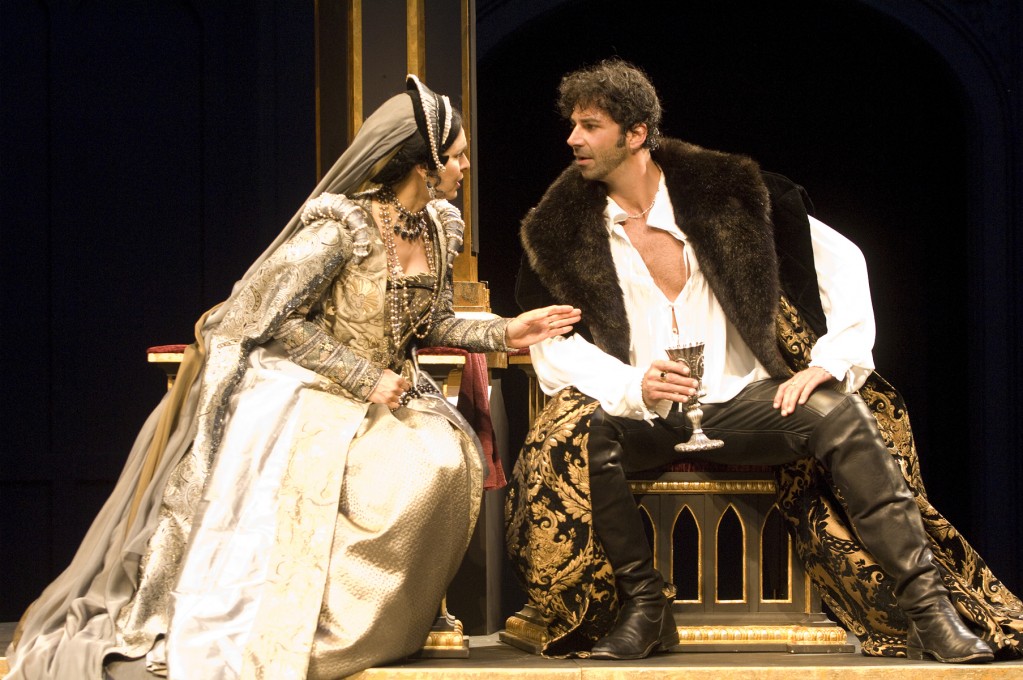
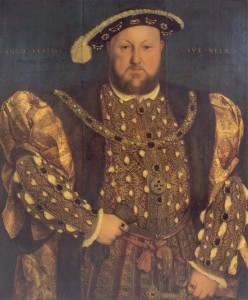 It’s almost as if we’ve turned this towering, talented, shrewd and savage leader into a pet — and so, in a way, does Shakespeare in Henry VIII, his final play. When it came to politics Shakespeare, whose company was sponsored by the king, played a necessarily careful hand (see Equivocation, below). His Henry, while hardly blame-free, is a generous-hearted fellow, good to his courtiers, solicitous of the feelings of the wife he’s dumping after 20 years, self-persuaded that his exchange of used-car Katherine for racy new convertible Anne is a matter of conscience, and painfully misled in matters of taxation and treachery by that rascal of a right-hand man, Cardinal Wolsey. In meticulously pruning the monarchial vines Shakespeare’s created a fine hearty fellow, if a little mixed-up and dense — and if there’s one thing the real Henry was not, it’s dense.
It’s almost as if we’ve turned this towering, talented, shrewd and savage leader into a pet — and so, in a way, does Shakespeare in Henry VIII, his final play. When it came to politics Shakespeare, whose company was sponsored by the king, played a necessarily careful hand (see Equivocation, below). His Henry, while hardly blame-free, is a generous-hearted fellow, good to his courtiers, solicitous of the feelings of the wife he’s dumping after 20 years, self-persuaded that his exchange of used-car Katherine for racy new convertible Anne is a matter of conscience, and painfully misled in matters of taxation and treachery by that rascal of a right-hand man, Cardinal Wolsey. In meticulously pruning the monarchial vines Shakespeare’s created a fine hearty fellow, if a little mixed-up and dense — and if there’s one thing the real Henry was not, it’s dense.